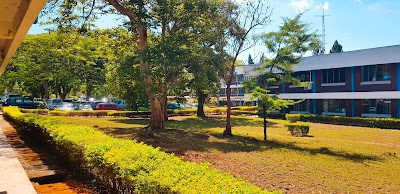Bingu National Stadium (Bingu National Stadium)
Overview
Bingu National Stadium: A Modern Sports Hub in Malawi
Bingu National Stadium, situated in Lilongwe, Malawi, is a premier sports facility that hosts a diverse range of events. Designed as a central hub for sports, particularly football, the stadium plays a pivotal role in nurturing a vibrant sports culture in Malawi. It stands as a venue capable of accommodating international fixtures, aiming to inspire passion and participation in sports across the nation.
Inception and Vision
The journey of Bingu National Stadium began with a vision to enhance the country's sports infrastructure. Named in honor of former President Bingu wa Mutharika, the stadium was conceived as a source of national pride. This ambitious project was part of broader initiatives to promote sports development and unity among Malawians, showcasing the potential for growth within the nation.
Construction Journey
Construction commenced in 2012 through a collaborative effort between Malawi and China, with significant financial and technical backing from the Chinese government. This partnership, emphasized by mutual agreements, aimed to strengthen bilateral relations while delivering a modern, multi-purpose stadium. The China State Construction Engineering Corporation (CSCEC) was entrusted with bringing this vision to life.
The construction process was meticulously planned and executed in multiple phases, ensuring that every detail met international standards. From the foundational work to the final aesthetic touches, the focus was on creating a facility that is both structurally sound and visually appealing. With a seating capacity of 41,100, the stadium features modern amenities, including VIP boxes, press rooms, and extensive training facilities.
Innovative Design and Sustainability
One of the standout features of Bingu National Stadium is its incorporation of advanced engineering techniques. The roof structure not only provides essential shade but also allows natural light to illuminate the interior. The seating arrangement and pitch dimensions were thoughtfully designed to ensure clear visibility from every angle, enhancing the spectator experience.
Moreover, the stadium's commitment to sustainability is commendable. Energy-efficient systems have been implemented, and efforts were made to minimize the environmental impact of construction. Features like rainwater harvesting systems exemplify the stadium's dedication to utilizing natural resources effectively and responsibly.
A Grand Inauguration
The stadium was officially inaugurated on January 28, 2017, with a spectacular ceremony that featured cultural performances and sports events. This momentous occasion was celebrated as a significant milestone for Malawi, symbolizing progress and unity. Dignitaries, sports personalities, and thousands of enthusiastic Malawians gathered to witness this historic event, marking the stadium's opening as a triumph for the nation.
Impact and Legacy
Since its opening, Bingu National Stadium has successfully hosted a variety of events, including local and international football matches. Serving as the home ground for the Malawi national football team, it has also hosted numerous tournaments, concerts, and community events. The stadium's presence has positively influenced the local economy by creating jobs and boosting business in the surrounding areas.
Bingu National Stadium transcends its role as a mere sports venue; it embodies the aspirations and achievements of Malawi. The facility stands as a testament to what can be accomplished through international cooperation and a shared vision for development. Its existence inspires the youth to engage in sports and strive for excellence within a world-class environment.
Conclusion
In summary, Bingu National Stadium in Lilongwe, Malawi, is an impressive fusion of modern design, engineering brilliance, and cultural importance. As a beacon of progress, it reflects Malawi's ambitions on the global sports stage and beyond, fostering a spirit of unity and inspiring future generations.







